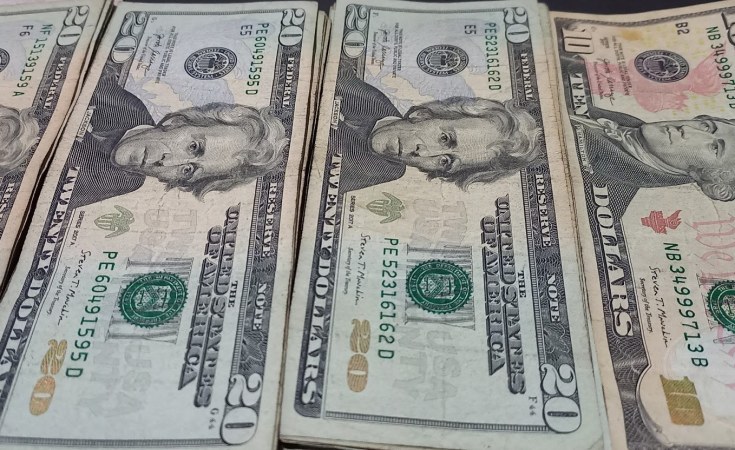Nairobi — Individuals hoarding foreign currency might find themselves on the wrong side of the law, if a proposed bill sail through.
Rongo Member of Parliament Paul Abuor has sponsored a bill which intends to alleviate the pressure of the Kenyans shillings which has suffered a sharp fall against foreign currencies especially the dollar.
The bill is seeking punitive measures on unscrupulous Kenyans purchasing US dollars for speculative purposes beyond their reasonable need shall be liable to fine not exceeding Sh1 million or ten years imprisonment.
The Forex Hoarding Criminalization Bill 2023 also intends to fine entities guilty of forex hoarding a fine not exceeding Sh10 million or revocation of their relevant licenses.
"The purpose of this Bill is to put measures in place to combat hoarding and to offer support to the Kenya Shilling so that it does not slide further against foreign currencies, particularly the US dollar," stated Abuor.
The Rongo Lawmaker stated that forex hoarding has continued to worsen the depreciation of the Kenyan shilling against the US dollar saying stern action are not taken the pressure on the country's currency will worsen.
According to the Central Bank of Kenya data, local foreign currency grew from 800 billion in August 2022 to Sh1.2 trillion by the end of July this year which has largely been attributed to the shilling drop by more than 14 percent since January.
"Extraordinary circumstances necessitate extraordinary actions. Without interfering with market forces, Kenya cannot enjoy the luxury of unscrupulous Kenyans purchasing US dollars for speculative purposes ,denying genuine Kenyans businessmen from purchasing the dollars in the local market to trade," Obuor stated.
In the proposed law, the Central Bank of Kenya is expected to establish guidelines on what constitutes reasonable needs for purchasing dollars in the market and the time frame for utilizing them.
Abuor recommended that any person or entities must make returns within 30 to 45 days on how the purchased dollars were used.
"You will just not be allowed to buy forex and keep it in your house. While people are suffering and the economy is hurting. The banks and forex bureaus must report to authorities all new transactions for the purpose of compliance," he stated.
Whistleblowers who report hoarding activities will be entitled to ten percent of the amount involved as the law intends to provide channels for anonymous reporting.
The Rongo Legislator mentioned that the bill once implemented will lower the cost of living as it will alleviate some pressure from the Kenyan shilling as the shortage in the dollar has affected purchase of fuel commodities.
"If you are buying just for speculation then you are not mindful of the people down there who are hurting because of increased cost of living as patriotic citizens we should take this in good faith not as a means to dictate," Abuor said.
At the same time, the bill has proposed the formation of the Forex Management Authority as a regulatory body to supervise the activities of market participants including forex brokers and dealers to ensure stability in foreign exchange market.
"We are saying you can buy and sell as you wish but as country, we are facing difficult times so we can't afford the luxury of hoarding even if its your fund. In the US you can buy dollars because it's the common currency but for us its not our local currency," Abour said.
Demand for dollars locally has gone up significantly this year in line with surging imports which has unleashed demand for both consumer and capital goods.
Global shocks sparked by Russia's invasion of Ukraine have also increased the prices of imported commodities, driving up dollar demand.
The shilling has also suffered from a stronger dollar as the US Federal Reserve hiked interest rates to fight inflation.
The rate hikes tend to spark dollar outflows to safe havens in the developed world, increasing demand f and depressing the value of the local currency.


